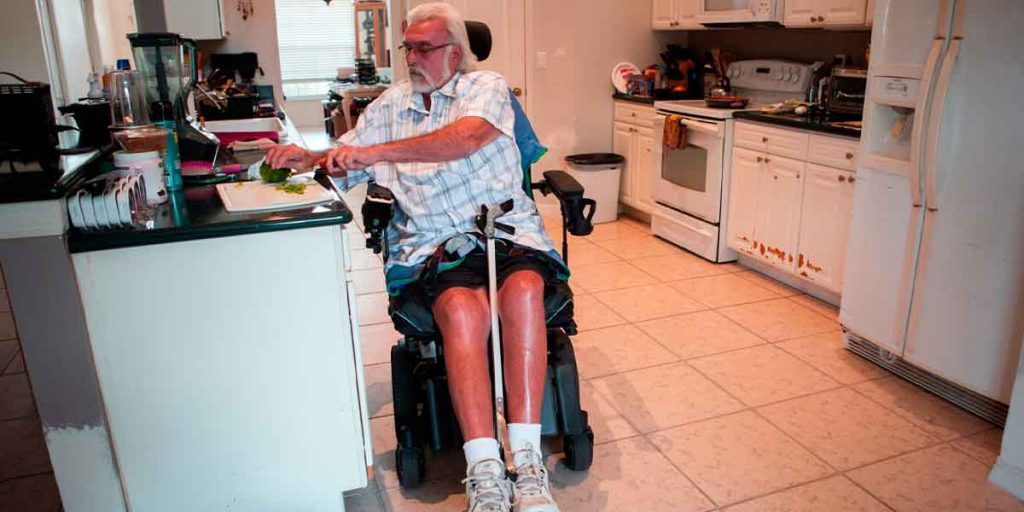Guardianship cases take different angles. Some end smoothly others will bring unending misery in the parties involved. The Patricia and Aba guardianship has been one of the most controversial guardianship of all time. Proper estate planning and guardianship law policies need to be set in place to ensure smooth transition of responsibilities when they become due. An estate planning lawyer and a guardianship lawyer are vital parties for incapacitation preparations
Patricia and Aba guardianship controversy
This is one of the gloomiest but common tales around what transpires when families forget to plan. This page explains the blunders that a certain family made on their journey through guardianship hell. Ada’s only child was Patricia and up till a few months prior to the court day, her life was rotating around Patricia. They were living together in an apartment that Patricia built in 2007 in harmony with Ada’s desires. Hitherto, Ada assisted in raising Patricia’s sons and daughter. The two women antagonized each other in the Superior court of the State of New Jersey due to Patricia petitioning to become Ada’s guardian, being certain that her mother was unable to manage her matters. She desired to be chosen as Ada’s guardian since she had been growing progressively nervous about the signs of her mother’s deterioration, that included numerous auto accidents and apparent dementia.
Afterwards, Ada’s license was taken and due to dizziness, she was taken to a health center. She threatened to commit suicide and murder her family and was at that point admitted to a psychiatric hospital to undergo observations. While still there, a medic diagnosed her as ailing with bipolar disorder.
Patricia was particularly concerned about her mother’s depression and suicide intimidations. In addition to that, Ada refuted medical attention for serious respiratory and cardiac problems. Regular grumpiness of continuous mistrust and temper destroyed their bond. These were the reasons behind Ada’s refusal to surrender control over her matters to Patricia and severely felt bitter about the guardianship happenings.
Subsequently, Ada’s last words to her mother were her making promises to demolish her family. In a verdict passed down from the panel, in all possible ways, Patricia lost the case. Her guardianship appeal was not only disallowed but she was also hit with a $675,000 owed to her mother to undo years of combined jointly owned assets and finances. A petition of the ruling was also let go as a part of the resolution.
Later on, Ada died by herself and disheartened many years later.
Later, Patricia, in conclusion stated that, her mother was stolen away from her family. The pain imposed on all the sides of this family rigmarole could have been evaded by essential futuristic planning, in accordance with specialists in elder law. Hitherto several people do not prepare adequately for family care and estate issues and then are forced to endure the consequences.
The 5 Financial Mistakes Made by this family.
- The first mistake committed by the family, an oral real estate agreement Verbal contracts are automatically null and void. Whatever you do involving real estate, specialists say, it should be put in writing.
- The second mistake committed by the family is not having different legal advisers. It is advisable that the Parents and grown children should have their own legal advisers for financial transactions. The basic reason for this is fairness. The parties should hire elderly care lawyers near them to assist in the process.
- The third mistake committed by the family is the joint possession of bank accounts and real estate between mother and daughter. A joint account can be endangered by poor monetary choices of whichever the party.
- The fourth mistake done by the family is not having the power of attorney or medical proxy. The power of attorney is to allow a party to perform on behalf of another while a medical proxy that would give authority to make medical decisions on behalf of the other party. Services of a medical planning attorney.
- Mistake 5 for the family was Patricia bringing the guardianship case. The conclusion of the guardianship case did little to end the legal hostility of the family. Ada’s relationship with Patricia pretty much went to waste after the guardianship case begun.
Guardianship; A last resort.
The conclusion is that a proceeding about guardianship is a nuclear warhead, and can only be used as a last alternative. It’s important to note that it can go off in the face of the individual looking for it.
Guardianship can actually go a very long way, in certain circumstances. In fact, the Ada Vocino case is still considered to some degree a landmark amongst guardianship specialists’ years after the legal battle ended. This is as a result of pain it caused and not for reasons of establishing any great legal precedent.
FAQs.
- When and how the seniors lose their rights. Upon acceptance of guardianship contract, guardians are able to sell the elder’s property and dominate over the lives of elder citizens even without their permission and obtain a surplus from it.
- In a guardianship, the guardian is legally responsible for taking care of the person that is not capable of managing their affairs. There is no definition, according to the law, of who qualifies as a guardian. They should have an established and positive relationship with the person.
- What are the roles of a guardian? Acquiring important medical services required and analyzing treatment, health care and helpful services accounts on behalf of the incapable person.
- What prohibits a person from being a guardian? When they are incompetent for example if they cannot take care of themselves, and if the person is a minor.
- The Power of attorney in guardianship proceedings enables the parties to relegate authority to someone else to make decisions on behalf of them if they are not able to make the decisions for themselves. The decisions may be personal, financial or medical.









